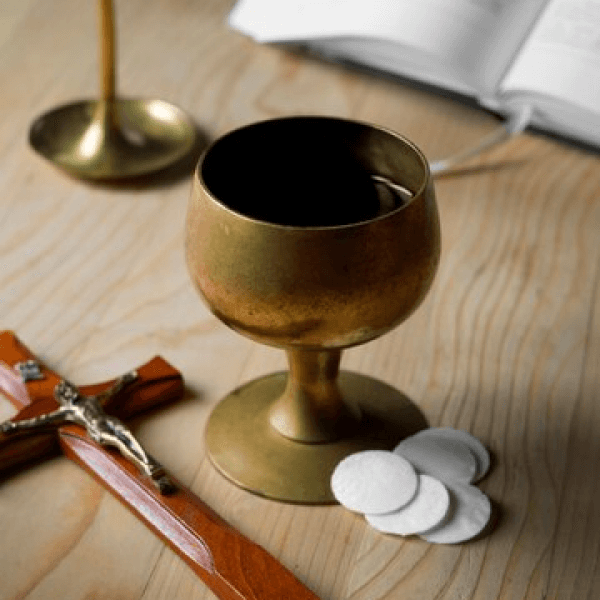
Can Your Congregation Donate to Your Church Through Crypto?
As you look to grow your donor base and raise funds to make your church’s work possible, it can be extremely helpful to look to forms of donation other than cash. As cryptocurrency becomes a trendy way to invest, your congregation may want to support your efforts by donating with cryptocurrencies such as Bitcoin, Ethereum, Dogecoin, or other virtual currencies.
The world of “crypto” is relatively new, surging in both popularity and value in the last few years. If your church is considering accepting cryptocurrency donations, you probably have a lot of questions about what it is, how to put it to use, and how to manage it. In this blog post, we’re answering a few of those questions: consider this your Cryptocurrency Donations 101 course. If you read this and still have questions, we’re standing by to help.
Can You Accept Crypto Donations?
The short answer to this question is yes, absolutely! Cryptocurrency is an asset that a large number of people have started investing in personally and many businesses have started accepting it as a payment method. Donating with cryptocurrency, and accepting these donations as a nonprofit or church, is a fairly new concept. Only a few hundred nonprofits nationally are accepting crypto from their donors.
Accepting a cryptocurrency donation is not unlike accepting a stock donation. Let’s say there’s a member of your congregation who wanted to give you 10 shares of stock in Nike. While that stock isn’t immediately related to the work your church does, it still carries value, and you can accept it as a non-cash asset donation. You might choose to accept that donation and immediately sell the stock or hold it as an asset.
If you choose to hold it, that stock might gain or lose value over time. What that member of your congregation has done by giving you the stock, rather than the cash from the sale, is present you with the choice about what to do with the asset to potentially grow its value. Donating with cryptocurrency comes from a similar place, as you can choose when and how to best use it.
Should Churches Accept Cryptocurrency?
The question of whether or not it’s possible to accept crypto donations is very different from the question of whether or not it’s acceptable to do so. From a legal perspective, it’s absolutely fine to accept cryptocurrency the same way you would accept a donation of any other non-cash asset. The matter of how the public might feel about a church accepting cryptocurrency is an entirely other matter.
From a marketing and public perception perspective, it’s up to you to decide whether or not you’re willing to accept Bitcoin or other cryptocurrencies as donations. If you choose to do so, it’s best to be clear to your congregation about how the funds earned from selling the donated cryptocurrency will be used to benefit the church—just as with any other donation. If you choose to keep to yourself how donations are being used, you might lose the trust of your parishioners and open yourself to public scrutiny.
If done well, you can encourage donating with cryptocurrency as a way to help your church grow its assets, support its long-term work, and potentially even draw in donations from younger and more tech-savvy members of your congregation. The Church of St. John the Evangelist in Goshen, NY, recently became the first Catholic church to accept cryptocurrency donations.
Father Rosado, who piloted the program, praises cryptocurrency for its ease of use, security, and simplicity, which allows the church to bypass issues with lost checks, wire transfers, and slow-moving bureaucracy. These talking points would be an excellent way for any church to talk about donating with cryptocurrency to potentially wary parishioners.
How Do Churches Accept Cryptocurrency Donations?
In order to accept and keep track of cryptocurrency donations, you will need to set up a virtual wallet on behalf of your church. A digital wallet functions like a bank account—it’s a way to see and manage your virtual currency, understand its value, and accept transfers from other virtual wallets.
When it comes to accounting, the IRS treats virtual currencies as non-cash assets, so keep in mind that you will need to file IRS Form 8282 if the virtual currency is worth at least $5,000 and is sold, exchanged, or otherwise disposed of within three years of receipt. You will also need to sign the donor’s IRS Form 8283, acknowledging receipt of the charitable deduction property, if the donor is claiming a deduction of more than $5,000.
Accepting and Cashing Out Cryptocurrency Donations
If you are working on a specific project or otherwise need capital, you might choose to accept a cryptocurrency donation. If this is the case, you can use your virtual walled to sell the virtual currency immediately and convert it to U.S. dollars, just like they would do with other donated property. This will give you a clear accounting of cash value without having to worry about monitoring the virtual currency or accounting for its value.
Understanding all of your church’s assets, including crypto, is much easier if you have full-service donor management software. You can always have a clear financial picture, as well as a deeper understanding of your congregation and which members are most likely to donate when you need capital. DonorWerx even offers an app, and in-church kiosk, and easy portals for donors to make their contributions online or via text. We’re happy to discuss a donor program that works for your church.
Choosing to Invest in Crypto Donations
Most virtual wallets will automatically invest in your cryptocurrency and help you monitor its value over time. This requires minimal action on your part as a church—you simply need to ensure that you accurately report bitcoin or other virtual currencies when it comes time to report your church’s assets.
As bitcoin and other currencies have skyrocketed over the last few years, holding the cryptocurrency might pay out in the long term and help you secure your church’s future. However, keep in mind that like stocks, bitcoin and other virtual currencies have fluid value and are generally unstable—it’s impossible to predict if they will retain their value, or if they’ll crash.
How DonorWerx Can Help
By accepting bitcoin, you have a unique opportunity to put cryptocurrency to work for the causes your church supports. DonorWerx is uniquely specialized in helping churches accept, manage, and grow the value of their donations.
If you’re interested in setting up a channel to accept cryptocurrency donations, our expert consultants can advise you on the exact steps you should take to improve your donor experience, manage your funds, and continue to grow your donations. If you’re interested in what we have to offer, get started today!
Teaser:
You’ve probably read the buzz online about Bitcoin and other forms of cryptocurrency. Your parishioners might have even approached you about wanting to make donations using these alternate currencies.
In this post, we’ll give you answers to the questions you might be asking yourself about this new technology and how it can benefit your church.
Unsplash Images
https://unsplash.com/photos/gogwOet3mkM https://unsplash.com/photos/JrjhtBJ-pGU https://unsplash.com/photos/y3FRkhP-UgY


